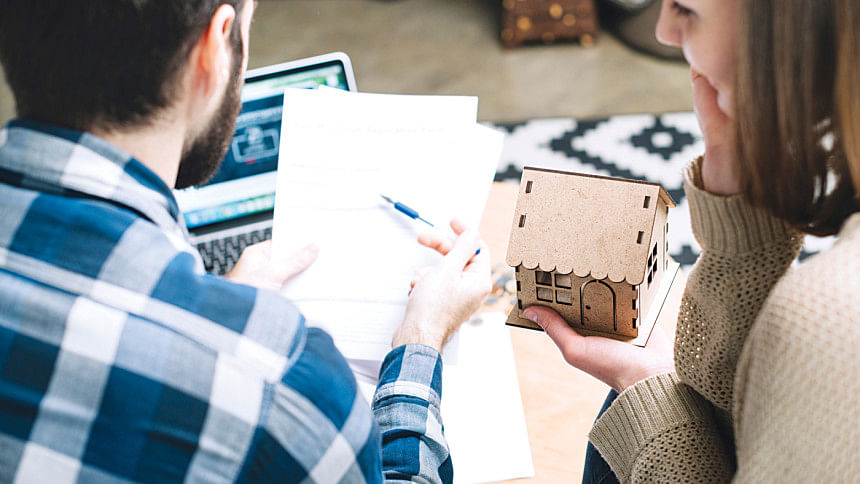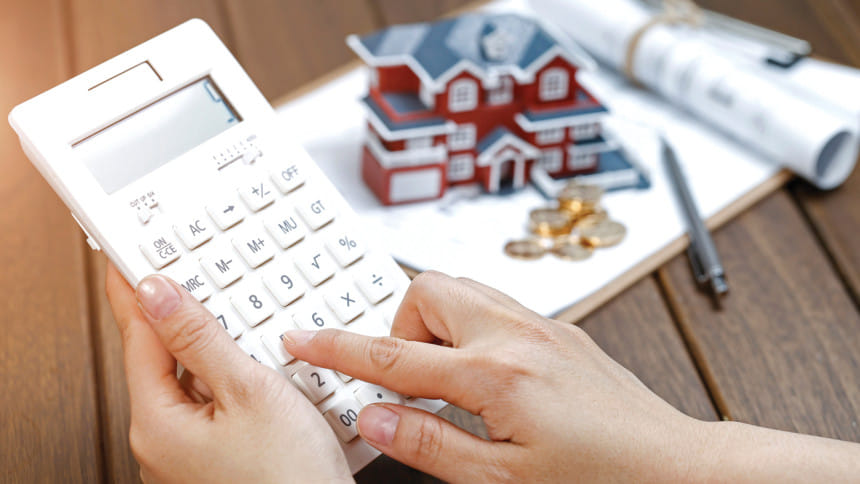The hidden costs of buying an apartment in Bangladesh

Purchasing an apartment in Bangladesh, particularly in urban centres like Dhaka, is a significant financial commitment. While the listed price per square foot is the most visible cost, numerous additional expenses can substantially increase the total outlay. Understanding these hidden costs is crucial for prospective buyers to budget effectively and avoid unexpected financial strain.
From registration fees and utility connections to hidden service charges and the critical task of document vetting, each step in the process demands careful attention. By approaching the purchase as a series of checkpoints - each carrying its own financial and legal obligations - a prospective homeowner can budget more accurately and safeguard their investment.
Costs begin with paperworks
To begin with, proper paperwork is the bedrock of any secure transaction. Buyers frequently struggle to verify the authenticity of land and apartment deeds provided by realtors. Hidden costs of buying an apartment in Bangladesh starts along with the verification process as the process requires various fees.
Before buying any flat, the papers of the flat need to be vetted by lawyers for issues like whether it suffers from any legal issues or if the land is mortgaged or not. These things should be checked at the sub-registrar's office. But without thoroughly searching the papers, buying an apartment is not a wise decision.
In practice, this means obtaining copies of all relevant documents and engaging a qualified advocate to scrutinise every detail. While this incurs legal fees, it ultimately forestalls far more costly complications, ensures that ownership rights are properly transferred, and paves the way for smooth loan approvals if needed.

Registration and government fees
Once legal counsel is in place, buyers should turn their attention to project approval. In Dhaka and other major cities, the Rajdhani Unnayan Kartripakkha (RAJUK) must sanction any new development. Prospective purchasers ought to request the building plan and approval certificate directly from the developer or the sales office, confirming that the project adheres to municipal regulations.
If RAJUK has granted approval, the accompanying documents along with certified planning drawings should provide assurance of legitimacy. However, should any discrepancies emerge during this review, the project will not have obtained RAJUK approval in the first place, signalling a red flag for buyers.
After verifying RAJUK clearance, a visit to the sub-registrar's office becomes indispensable. Here, buyers check whether the land on which the apartment stands has been officially recorded under the developer's name or, if purchasing a resale unit, under the previous owner's name. This process involves examining the title deed and confirming the absence of mortgages or encumbrances.
A trip to the Assistant Commissioner's (AC land) office allows buyers to verify mutation records, which reflect the transfer of ownership in revenue documents. At the local Tahsil office, the land development tax register provides further confirmation that taxes are being paid and that the developer or seller truly possesses the land. By undertaking these steps, buyers can ensure that they are not inadvertently acquiring property with contested or defective legal standing.
Even when the legal foundation is sound, several financial obligations lie in wait. Registration and government fees typically run between a certain percent of the apartment's deed value. Stamp duty, registration fees, value-added tax (VAT), gain tax and local municipality levies all contribute to this total.

Hidden costs after getting the keys
After all the verification, once the keys are in hand, hidden costs still continue. Connecting utilities like electricity, gas, and water requires separate application fees payable to the respective service providers such as DPDC, DESCO, Titas and WASA. These are rarely factored into the advertised sale price, but they can quickly amount to significant sums and long visits to the service provider office with loads of documents.
Service and maintenance fees present another recurring cost. After purchase, apartment owners pay monthly service charges to cover the upkeep of common areas, security services, elevator maintenance and any other shared facilities. The exact figure depends on the amenities provided and the management policies of the housing society or developer.
In many cases, developers advertise a modest service charge during pre-launch sales, only for buyers to discover higher-than-expected bills once the building is occupied. Similarly, securing a designated parking space in a high-demand neighbourhood often incurs a premium fee which can be either as a one-time payment or higher monthly maintenance, while optional storage units may also come at an extra cost.
Interior and renovation expenses
Interior expenditures, while variable, deserve equal consideration. Furnishing an apartment to one's taste can include significant outlays for furniture, kitchen appliances and décor. Even if buyers choose to furnish gradually, hiring professional movers and paying for installation services adds to the overall expense.
Renovations or minor alterations such as installing air-conditioning units, modifying kitchen layouts or constructing built-in wardrobes - can further increase costs. This should come into consideration when buying an apartment.

Financing and home loans
Home loans, too, carry hidden components. Although banks typically finance up to almost 70 percent of the apartment's total cost over 10 to 20 years to make the purchase more attainable, banks impose processing fees, appraisal charges, and mandatory insurance costs. The prevailing home loan interest rate which typically hovers around or over nine percent - converts into substantial interest payments over the loan's lifetime. On the positive side, banks typically work only with developers whose documentation is impeccable.
Lawyers typically advise buyers to purchase from developers who are members of Real Estate and Housing Association of Bangladesh (REHAB), on the understanding that these companies have already conducted thorough due diligence. However, there are individual sellers who operate outside of REHAB.
Buying an apartment in Bangladesh is not just about paying the asking price. It is a step-by-step process that involves legal checks, official approvals, and a range of extra costs that often catch buyers off guard.
From making sure the deed is genuine and the building is approved by RAJUK, to planning for registration fees, utility setup, service charges, and interior work - it all adds up to a lot of work. But if you approach it like a checklist, ticking off both the legal and financial tasks one by one, the whole experience becomes much more manageable. And in the end, you're not just buying a home - you are securing peace of mind. Just be aware of the hidden costs.

 For all latest news, follow The Daily Star's Google News channel.
For all latest news, follow The Daily Star's Google News channel. 



Comments